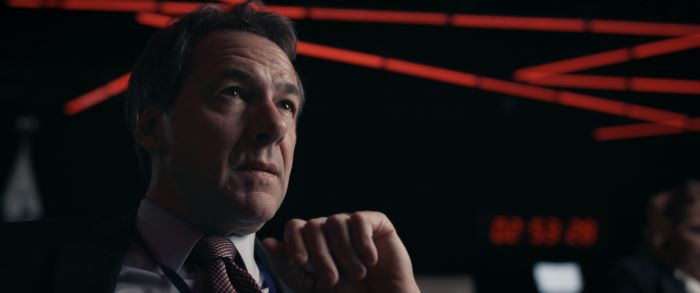I think it’s safe to say that, when it comes to the riots at the Capitol on January 6, 2021, many ordinary Americans were in for a shock. This is saying something, for, as Laura Kipnis has written, disruption is the new norm, and many of us are numbed, in this election cycle and in the last one, to whatever scandals crop up in the news and to whatever fault lines emerge in our sense of security. It is easy to see the riots as inevitable in retrospect, but according to Army veteran Kris Goldsmith, to those really watching and studying the extremist right in this country, it was not a surprise at all.
War Game, a new documentary from directors Jessie Moss and Tony Gerber, takes as its premise that more such insurrections are inevitable, and therefore must be anticipated. To this end, a veteran’s group called Vet Voice Foundation has been developing simulation exercises so that government officials will be better prepared for them. A particular concern for the organization, one it does not believe the federal government is taking very seriously, is the growing number of right-wing radicals in the military.
On January 6, 2023, the filmmakers were allowed to film the exercises, which were completely unscripted. The personnel involved here are no small deal—the stand-in for the president is a former governor of Montana (Steve Bullock). Others have served in the CIA and variously in Washington and play a different member of the president’s cabinet. All take the threat seriously, and are well enough schooled in the workings of the constitution that they treat the matter with knowledge and professionalism. They are placed in a room, given a scenario about a fictional group challenging the legitimacy of the presidency and then, as the unseen mob grows more violent and more disinformation spreads on social media, forced to figure out what to do. The looming, perhaps omnipresent question is whether or not to invoke the Insurrection Act, which authorizes the president to use troops to suppress civil unrest.
I’ll admit that this sort of documentary, with its pounding score and video game–esque tone of suspense, often rubs me the wrong way, and also that the role play format, no matter how many curveballs are thrown to the participants, seems a little too tidy for the insanity that grips the country. I did find myself asking a few times: What if insurrectionists see this? Will they be able to outwit the government further? We do not necessarily finish the film with the faith that the exercise has helped anyone become more prepared.
Be that as it may, it is impossible to doubt the validity of the concerns raised, especially when it comes to the threat of U.S. military personnel who are involved in far-right extremism and the validity of the Insurrection Act. The dialogue surrounding the latter involves how rarely it is used and how doing so is potentially a declaration of civil war. (When civilians are fired on, they theoretically are given license to choose the master they recognize.) Regarding the former, there is much discussion of the problem, and while there is little by way of a solution, the talking heads do a fine job illustrating the potential implications. The film is often most interesting when personnel step back from role playing and are interviewed about their personal history with the issues at hand. Some have seen intelligent relatives fall prey to extremism, others have turned their back on extremism themselves, and thus are well prepared to analyze it.
This viewer could have used more in-depth discussion of this kind, rather than the focus on the simulation exercise. Still, if the exercise does not fully convince, we finish the film fully convinced of the threat, if we weren’t already.







Leave A Comment